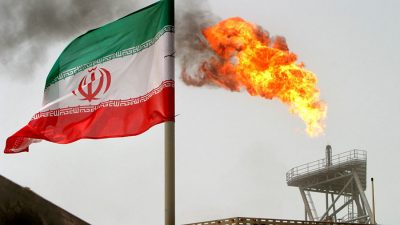Media Lies About Iran Deal, Headlines Repeat Unfound State Department Claims

Iran announced last week they will be enriching uranium to 5% which is over the 3.67% limit set by the Joint Comprehension Plan of Action signed in 2015 under the Obama administration.
Iran has every right to go over that cap, since the US pulled out of the deal over a year ago and reinstated crippling sanctions on the Islamic Republic.
But if you look at headlines in the mainstream media, you would never know Iran was exercising its right as per the JCPOA.
Reuters July 7, 2019: Iran ratchets up tensions with higher enrichment, draws warnings
BBC July 7, 2019: Iran nuclear deal: Government announces enrichment breach
NPR July 7, 2019: Iran’s Uranium Enrichment Breaks Nuclear Deal Limit. Here’s What That Means
USA Today July 7,2019: Iran begins uranium enrichment beyond limit set by 2015 nuclear deal in latest violation
Wall Street Journal July 7,2019: Iran Plans New Breach of Limits of Nuclear Agreement
New York Times July 7, 2019: Iran Announces New Breach of Nuclear Deal Limits and Threatens Further Violations
The International Atomic Energy Agency (IAEA), the UN nuclear watchdog assigned to ensure Iran’s compliance with the JCPOA, reported the Islamic Republic’s compliance as recently as May 31st 2019, over a year after the US pulled out of the deal.
The IAE also reported that Iran gave full access to its inspectors,
“Timely and proactive cooperation by Iran in providing such access facilitates implementation of the additional protocol and enhances confidence,” the report stated.
Iran has been staying within the deals limits in hopes that other signatories of the deal would help with relief from US sanctions. Iran’s economy relies heavily on oil exports, which have fallen to about 300,000 barrels per day, compared with the 2.5 million barrels Iran was selling in April 2018.
Section 21 of the JCPOA reads,
“The United States will cease the application, and will continue to do so, in accordance with this JCPOA of the sanctions specified in Annex II to take effect simultaneously with the IAEA-verified implementation of the agreed nuclear- related measures by Iran as specified in Annex V.”
The plan then goes on to specify all the sanctions the U.S. must lift, which now have mostly all been re-implemented.
Section 21 makes it clear, if the IAEA verifies that Iran is complying with the JCPOA the US must lift all the sanctions and keep them off or else they are in violation of the deal.
On Thursday, CNN reported that Iran’s Islamic Revolutionary Guard Corps (IRGC) attempted to seize a British oil tanker in the Strait of Hormuz. The CNN article used two unnamed US officials as its sources. They also quoted an unnamed British Ministry of Defense source that said it “appeared that the Iranian vessels were trying to divert the Heritage from international to Iranian waters” before the British Navy ship HMS Montrose “got between them and issued a verbal warning to withdraw.”
Iran’s Foreign Minister Javad Zarif denied the allegations and said,
“They make such claims to create tension, yet these claims are worthless and they have made many such claims.”
No evidence for these claims has been provided.
The CNN article even said,
“A US aircraft was overhead and recorded video of the incident, though CNN has not seen the footage.”
Still no footage has been released, this story could have been completely fabricated and these “unnamed officials” know they can feed any information they want to these “journalists” and they’ll report it as fact. It helps paint Iran as the aggressor.
The CNN article barely mentioned the fact that on July 4th, British Royal Marines landed a helicopter on an Iranian oil tanker off the coast of Gibraltar because it was suspected of being bound for Syria. Selling oil to Syria violates EU and US sanctions.
Look at how the New York Post reported the alleged attempted seizure of the British tanker:
New York Post, July 11th 2019: Iran’s latest provocation isn’t even about the nuke deal
The Post article did report on the British seizing an Iranian tanker, the article read,
“Notably, the Royal Marines took custody of that Iranian ship because it was blatantly taking oil to Syria, in defiance of European Union sanctions. By attempting a reprisal, Tehran is trying to bully Britain and, by implication, the rest of Europe, into giving it a free hand in Syria.”
Somehow to the New York Post Iran is the bully in this situation? All Iran wants to do is sell their greatest natural resource. Who are the United States and EU to decide who they can and cannot sell it to? The US violated the JCPOA first and reinstated crippling economic sanctions, they sound like the bully.
*
Note to readers: please click the share buttons above or below. Forward this article to your email lists. Crosspost on your blog site, internet forums. etc.
Dave DeCamp is a freelance journalist based in Brooklyn NY, focusing on US foreign policy and wars. He recently joined Antiwar.com as an assistant editor. He is on Twitter at @decampdave.

